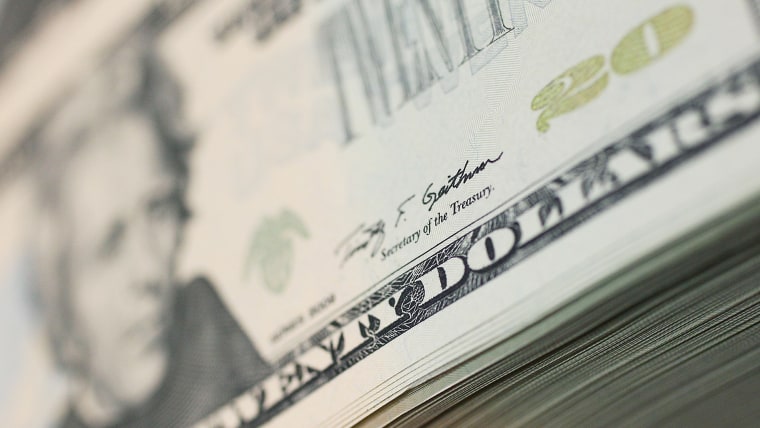For those concerned with the national debt, yesterday brought some discouraging news: the debt officially topped $22 trillion. The Associated Press reported:
The Treasury Department's daily statement showed Tuesday that total outstanding public debt stands at $22.01 trillion. It stood at $19.95 trillion when President Donald Trump took office on Jan. 20, 2017.The debt figure has been accelerating since the passage of Trump's $1.5 trillion tax cut in December 2017 and action by Congress last year to increase spending on domestic and military programs.
It was three years ago last week when Donald Trump appeared on Fox News and assured viewers that, if he were president, he could start paying off the national debt "so easily." The Republican argued at the time that it would simply be a matter of looking at the country as "a profit-making corporation" instead of "a losing corporation."
A month later, in March 2016, Trump declared at a debate that he could cut trillions of dollars in spending by eliminating "waste, fraud, and abuse." Asked for a specific example, he said, "We're cutting Common Core." (Common Core is an education curriculum. It costs the federal government almost nothing.)
A month after that, in April 2016, Trump declared that he was confident that he could "get rid of" the entire multi-trillion-dollar debt "fairly quickly." Pressed to be more specific, the future president replied, "Well, I would say over a period of eight years."
By July 2016, he boasted that once his economic agenda was in place, "we'll start paying off that debt like water."
When making a list of Donald Trump's most audacious broken promises, this one belongs near the top.
Complicating matters, I'm not altogether sure the president understands what the national debt is or how it changes. Two weeks ago, a reporter asked him why, during a period of economic health, the deficit and debt are growing rapidly. "Well," Trump responded, "the trade deals won't kick in for a while."
There was no meaningful relationship between the question and the answer. The president's response was effectively gibberish.
It's possible, of course, that this was Trump's way of dodging a difficult question about one of his more obvious failures. It's also possible that he's genuinely lost and doesn't know the meaning of some pretty basic terms.
Either way, the debt that Republicans only pretend to care about during Democratic administrations continues to reach new heights -- or in this case, depths.
